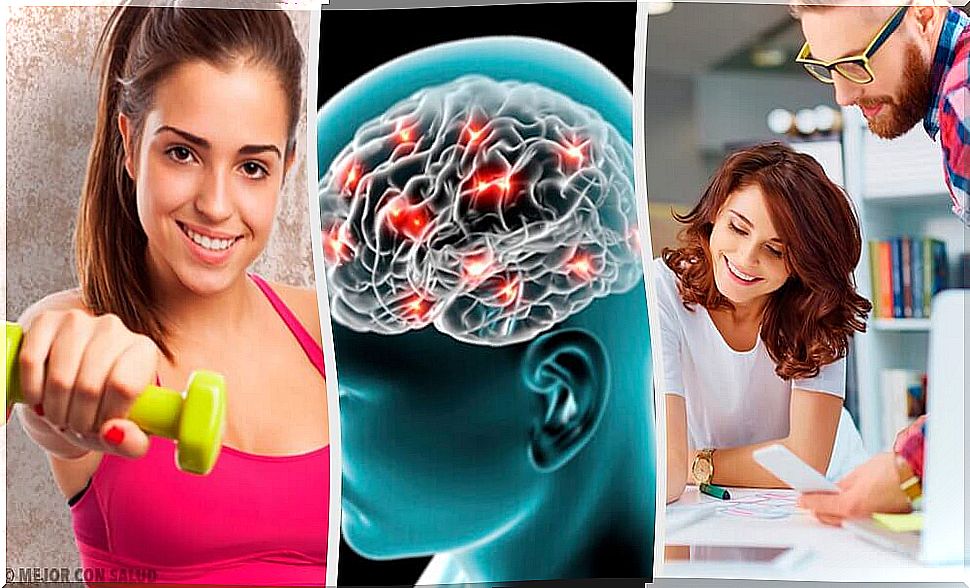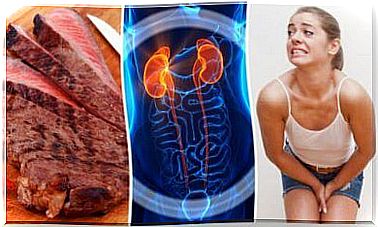8 Neurobiological Tips To Help You Be Happy
There are many actions which, despite their simplicity, have a great effect on our organism. Discover them!

Here are 8 neurobiological tips to help you be happier. This is possible thanks to your brain. By taking into account the actions that can help you, you will make positive changes in your body.
When we manage to balance our bodily functions and enjoy good health, we also enjoy a sense of well-being which helps us to be happy.
Discover with us how you can use your own brain to promote these biological processes which generate, among multiple reactions, the secretion of well-being hormones.
8 neurobiological tips to be happier
1. Always be grateful

Gratitude is not just a verbal expression. It is a gesture that is accompanied by a beneficial emotion, both for those who feel it and for those who receive the thanks.
When we thank someone, we put ourselves on the positive side of life. This stimulates the production of serotonin in the anterior cingulate cortex. This is a method that is already used in some cases to combat depression.
2. Be proactive and make decisions
When a person has a problem and wants to find a possible solution, the brain tries to work on it. To find a solution, the brain needs energy. Therefore, the expenditure of energy can cause anxiety and irritation in the person.
However, when the brain decides to take action, the neurotransmitters that are used to calm the limbic system are activated. It helps to see the world in a more positive light.
Therefore, it is necessary to take actions that help the brain to release the stress caused by finding solutions to a conflict.
3. Express yourself! Free yourself from negativity
Another of the most effective neurobiological counseling that exists is verbalizing or expressing our inner world. When we free our thoughts, we feel better about ourselves and we don’t have negative emotions that can harm our body.
By expressing your thoughts and releasing the tension through it, your brain will start producing serotonin and even be able to see the positive side of some unpleasant situations. On the other hand, multiple areas of the brain will be activated.
4. Neurobiological counseling: social interaction
For humans, social interaction is very important. In particular, what we need most is social support, especially hugs and hugs. These gestures are those which help us to recover more quickly from our suffering and after illnesses.
If we cannot enjoy human contact in our life, our brain will perceive this loss as physical pain because it affects the same areas of the brain.
As a result, it can initiate processes that affect mood and which could lead to depression.
5. Don’t stop learning

Constantly giving your brain new information. This will cause the brain to perceive a constant change in the environment to which it will have to try to adapt.
Each time the brain goes through this adaptation process, it continues to develop and rewards itself with dopamine, the happiness hormone. All of this is done by receiving and processing new information.
So if you want to be happy you know what the solution could be.
6. Physical exercise and neurobiological counseling
When we exercise, endorphins are released. The pituitary gland produces this hormone as a reward and the brain perceives an effect similar to that of morphine.
In this way, it reduces the sensation of pain and promotes well-being. With just one long walk, you can already feel this effect.
7. Neurobiological advice: have a good nights sleep

When we sleep in the dark, the brain produces melatonin. This hormone slows down all processes in the body, and helps the body to recover. In other words, it causes an increase in serotonin in the hypothalamus.
Therefore, if the brain senses that there is a change in the lighting in the bedroom, it will start to secrete the stress hormone and eventually wake up the body. So it is best to try to sleep 6-8 hours a day in a dark room if possible.










